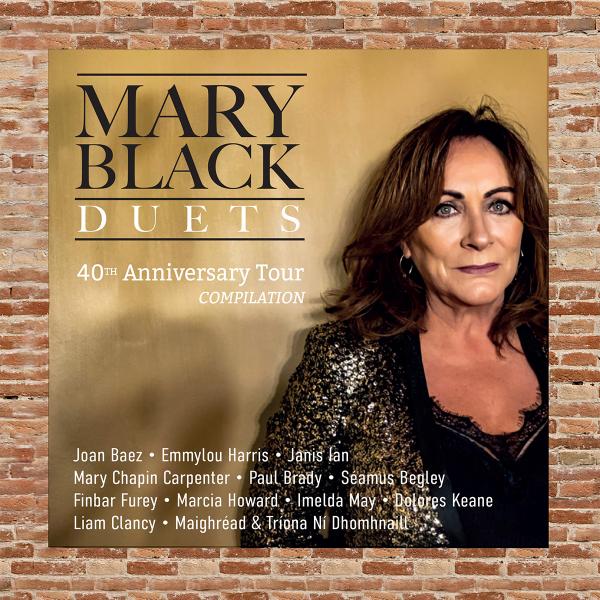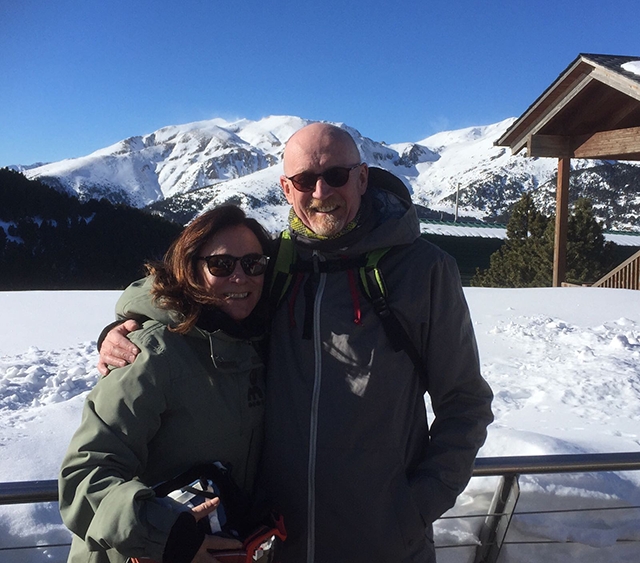The Meaning In The Words
Although a quintessential voice of Ireland, singer Mary Black has become deeply connected with Australian music. Martin Flanagan spoke with her in her Dublin home.
I stayed with Mary Black in Dublin for a couple of days last year. She was leaving for a holiday in Crete and said I might as well have her car, a recent-model Jeep with an excellent sound system, while she was away. Generosity is as natural to her as opening doors is to some others.
She lives in Dublin with her husband Joe, two sons and a daughter. As often as she can, she goes to her holiday house in Kerry. In the furthermost corner of rural Ireland she finds plenty of "sessions" she can attend. A session is a music night; everyone brings something along, everyone is heard. I sang at a session in County Roscommon and I can't sing. Mary Black says it doesn't matter whether you can sing or not, it's "what meaning you bring to the words".
The dual nature of her background is reflected in her manner. She grew up among the Dublin working class and has the quick wit and no-nonsense manner that go with that. But she has that other thing that seems to come from Irish indigenous culture - that other sort of knowing.
There's a lot you could say about Mary Black. She has dark good looks, grey eyes and soft brown skin that has not known years of burning sun. There's a candour about her that is integral to both her art and conversation. She can be intensely ordinary as when she gets up to make a sandwich for Conor, her eldest son, when he comes in tired from work.
Conor is a physical lad. He looks like a farm boy, a big powerful one. He plays Gaelic football, a passion he shares with both his parents. His younger brother Danny also plays. Danny is gifted at music.
Mary's husband Joe, a slender man with orange hair, is a past president of the club and the manager of two of its under-age sides. He's a businessman - his wife's manager - but there is an obvious decency and kindness about him.
After the Irish team met violence against Australia in the recent Test series, Joe asked an Australian acquaintance, "Why did they have to do that?" like you might ask why someone had to smash a window instead of opening it.
Joe had been wanting to introduce the Australian idea of a best-and-fairest award at his club. In his wife's early career, when she had to tour with Irish traditional band De Dannan, he stayed at home with the children.
Before I went to Ireland, the sports editor said it might be a good idea if I went to the town the Sydney Swans' Tadhg Kennelly is from - Listowel in County Kerry. His parents have a pub, I was told. Go and have a beer with them.
Kennelly's pub is now an Italian restaurant but what Listowel does have is a seriously good writers' centre. Kerry is one of the places where the two languages, Irish and English, still meet and swish about. I liked a lot of what I saw, not least a poem up on the wall by Brendan Kennelly. Turns out he is a distant relative of Tadhg's.
Brendan Kennelly played under-age football for Kerry. He is also one of Ireland's leading poets and this is a country that remembers a time when poets stood beside kings. His poems that I have read are quite bare - like winter trees.
I had recently turned 50 and his poem in the Listowel Writers' Centre, titled Begin, is the best expression I have read about that period of life as I encountered it. The poem ends:
"Though we live in a world that dreams of ending/that always seems about to give in/something that will not acknowledge conclusion/insists that we forever begin"
A week or so later I reached Dublin. Mary Black picked me up from the bus station. We went back to her place, had a drink and a good talk. We listened to a version of a Shane Howard song she has just recorded, Until the Light of Day.
It sounded great to me but she was dissatisfied and said it would have to be done again. It is the eighth song of the Warrnambool songwriter's she has now recorded.
The story of how the pair connected is worthy of a novel. Formerly with Goanna, Shane Howard had a national hit with Solid Rock. He was down and out living in a caravan in the Gulf of Carpenteria, finding no audience for his work in this country, when he learned he had a hit in Ireland, Mary Black having recorded his song Flesh and Blood.
Howard subsequently toured with Black in Ireland and saw how indigenous culture in Australia connected him to indigenous culture in Ireland. A bridge was made. Mary Black is one of the few important Irish recording artists to have explored contemporary Australian culture.
There have been three anthologies now of Irish women or women of Irish descent singing under the title A Woman's Heart. On the last of these, Black sings If I Gave My Heart to You. By Broome songwriter Jimmy Chi, the song was part of the incandescent indigenous musical Bran Nue Dae.
As love songs go, it's as pure as the blue waters of Roebuck Bay. When she sings it, the same purity is there but the colours are different. They're Irish.
Another of her songs, The Crusader, written by Irishman Mick Hanly, was inspired by Australia's camel lady, Robyn Davison. She has worked a lot with Stephen Cooney, the man who put the didgeridoo into traditional Irish music.
Australia is part of her.
Mary Black appears at this year's sold-out Port Fairy Folk Festival from March 10 with a Melbourne show on March 16 at the Forum Theatre.


